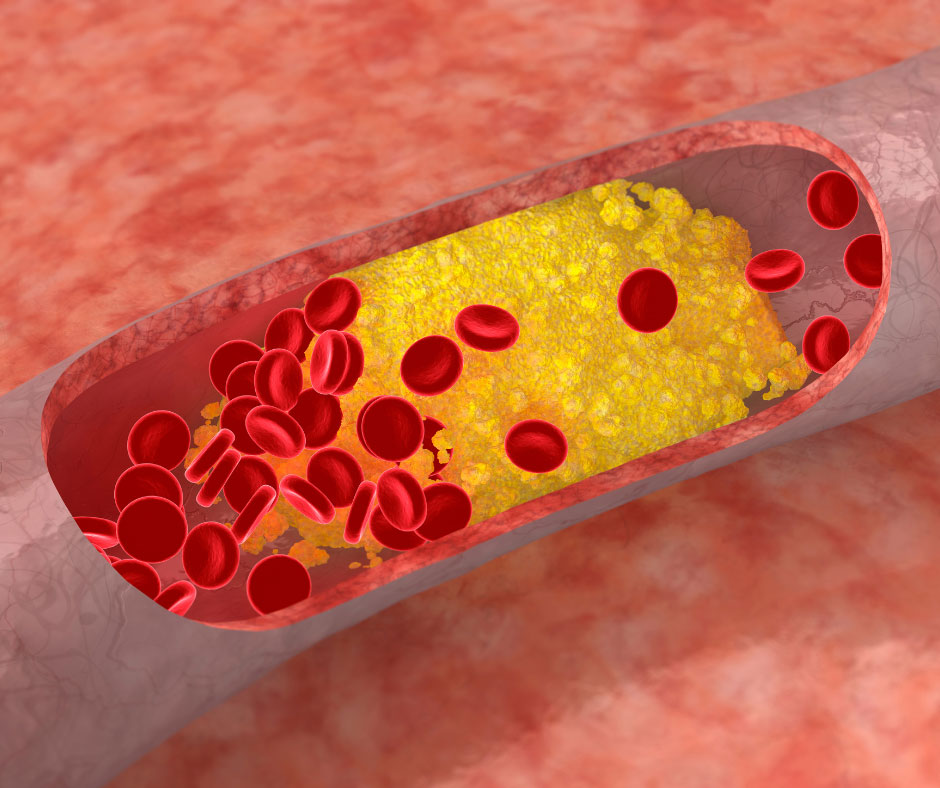Update on the Research of Dr. Prediman K. (P.K.) Shah, MD, MACC, FACC, FACP, FCCP
-Shapell and Webb Family Chair in Clinical Cardiology
-Director, Oppenheimer Atherosclerosis Research Center & Atherosclerosis Prevention & Management Center at Cedars-Sinai Medical Center
-Director, The Heart Foundation’s Steven S. Cohen Endowed Fellowship in Atherosclerosis Research
-Professor of Medicine at Cedars-Sinai and UCLA
Nearly a quarter century ago, Dr. Shah established the Oppenheimer Atherosclerosis Research Center at Cedars-Sinai Medical Center. Today, Dr. Shah and a team of 20 collaborators continue forging new ground in their efforts to identify the mechanisms leading to atherosclerosis (plaque buildup in the arteries), a fatal illness at the root of most heart attacks, strokes and sudden deaths.
Thanks to the support of our generous donors who share our mission to develop more powerful and effective approaches to heart disease prevention and treatment, Dr. Shah and his research colleagues continue to make crucial progress in deepening our understanding of the diagnosis and prevention of atherosclerosis. Their discoveries will ultimately improve the lives of patients across the nation who are battling not only heart disease but also Alzheimer’s. Following is an update on the developments which have taken place in the laboratory over the last year.
1. P.K. Shah’s research of the mutant gene ApoA-1 Milano continues to make great progress. ApoA-I Milano is a naturally occurring mutant gene that encodes the ApoA-I Milano protein. As mentioned in past reports, this gene produces HDL, or high-density lipoprotein. Also called “good” cholesterol, HDL provides greater protection against atherosclerosis and vascular inflammation — conditions that result in clogged arteries, stroke and heart attack. In previous investigations, Dr. Shah and his team demonstrated that intravenous injection of this protein (manufactured by genetic engineering technology using bacteria as a factory) dramatically reduces plaque buildup and shrinks pre-existing plaque in animal models. They are currently exploring potential industry partners to move this technology into clinical evaluation. Most recently, Dr. Shah and his team have shown that by using an innocuous virus, the ApoA-1 Milano gene can be transferred into animals. Unlike the intravenous injection which must be repeated to maintain the protective effect of the HDL, this gene transfer allows the body to create its own supply of HDL which shrinks or reverses existing arterial plaque. The goal is to now develop this approach for human testing.
2. Dr. Shah and his team have also made progress in developing ApoA-1 Milano gene transfer and gene-based therapy to prevent Alzheimer’s disease. In this effort, they are examining the anti-inflammatory effects of the ApoA-1 Milano gene against the memory disorder in animal models. They continue to modify this approach as they learn more about this protective protein and how it works in the brain.
3. In his efforts to develop a vaccine for atherosclerosis, Dr. Shah is broadening his understanding of the immune system and the role it plays. As mentioned in previous reports, this work involves identifying specific antigens within cholesterol particles that provoke a protective immune response, allowing the development of an active vaccination strategy against cholesterol-plaque buildup. This active vaccine contains an antigen that when injected will stimulate the immune system to produce antibodies against the cholesterol particles. This vaccine against plaque build-up may also reduce high blood pressure and rupture of aortic aneurysm. In addition, Dr. Shah and his team have also pioneered the development of a passive cholesterol vaccine which involves the injection of a pre-formed antibody to reduce cholesterol plaque buildup inside arteries. This passive cholesterol vaccine has been tested and shown to be safe in a Phase 1 human trial. Plans are underway to initiate a Phase 2 efficacy human trial sometime in 2019.
4. Finally, Dr. Shah and his team continue to advance studies on the impact novel genes have on cardiac disease. Coronary and carotid arteries are remarkably susceptible to atherosclerosis, yet internal mammary arteries and radial arteries are almost resistant to it. By seeking to explain why this is the case, Dr. Shah has examined the genetic expression patterns of athero-prone and athero-resistant arteries and has found novel expression patterns that are unique to either coronary or mammary arteries.
Project Update from Xiaoning Zhao, PhD
Recipient of the Steven S. Cohen Endowed Fellowship in Atherosclerosis Research

Through our Steven S. Cohen Endowed Fellowship in Atherosclerosis Research, under the direction of Dr. P.K. Shah, The Heart Foundation is training the next generation of extraordinary physician-researchers in cardiac medicine and paving the way for game-changing advances in atherosclerosis prevention.
The project, led by Dr. P.K. Shah, to develop a vaccine against atherosclerosis continues to move ahead. First, as part of our progress reported last year, we demonstrated immunologic memory to the vaccine providing the conceptual framework of testing for p210 peptide vaccine response, however, those studies were performed exclusively in an animal model. To determine if the concept can be translated into clinical use, we developed a new mouse model with a humanized immune response. These mice have T cells that are responsive to activation proteins found in human cells and will aid in further developing the vaccine that can generate the best immunologic memory to the p210 peptide vaccine in humans.
Second, we have initiated studies in utilizing nanoparticle technology as a potential vaccine delivery method. Nanoparticles have attracted great attention in the last decade as they are particularly attractive for clinical and biological applications due to their low toxicity, biocompatibility, and biodegradability. Because of the advantage of the nanoparticles as vaccine carrier, we are testing their use to enhance the specificity and efficiency of the p210 vaccine immunization. In collaboration with Dr. Eun Ji Chung of the Department of Biomedical Engineering at USC, the p210 peptide vaccine was successfully joined to nanoparticles. These nanoparticles are currently being tested for biologic function as a potential vaccine carrier. We are optimistic that expanding our collaborative work will help us reach the ultimate goal of developing a vaccine for atherosclerosis that can be used in humans.









